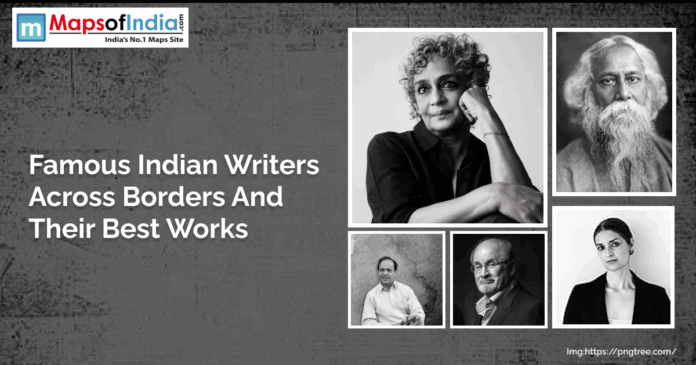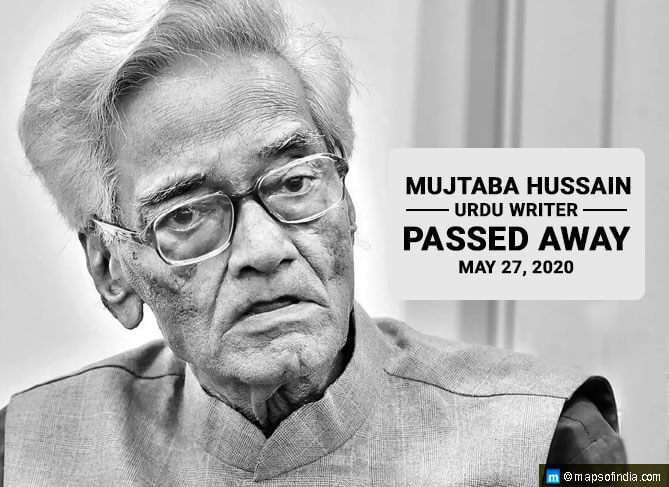Indian literature has left a global footprint in the world of literature. The stories written by indian writers resonate with global readers. Their works have explored many interesting topics, including identity, history, and culture. Many Indian authors dominate international bookshelves. Indian authors have their own reader base. They have won many prestigious awards, from the Pulitzer to the Booker Prize. Their voices transcend borders. They blend Indian ethos with universal themes.
Rabindranath Tagore: Poet of Universal Wisdom
Rabindranath Tagore reintroduced Indian literature to the world. He was born in 1861 and won the Nobel Prize for literature in 1913. He became the first non-European to achieve this honour. His book Gitanjali is considered a spiritual masterpiece. This book explores love and divinity in its lyrics. This book is translated into many languages, and it has reached global readers. Tagore’s The Home and the World tackles nationalism. Nowadays, these books are considered political classics. His books mix Bengali traditions with universal ideas. Tagore, in his long writing career, wrote poems, novels, and plays. He established Visva-Bharati University to promote learning in nature. His prose carries Sufi and Baul mysticism. Due to his work, he achieved global admiration. Tagore’s legacy endures in world literature. His words inspire across generations.
Salman Rushdie: Master of Magical Realism
Salman Rushdie is a giant in the literary world. He was born in 1947 in Mumbai. His books have blended history with fantasy. His novel Midnight’s Children won the Booker Prize in 1981. This tells the story of children born at 12 midnight on 15 August. This book also received the Booker of Bookers in 2008. The story of the book follows Saleem Sinai, born at midnight in 1947. This book uses magical realism to explore identity. Rushdie’s The Satanic Verses sparked global debate. His book has a mixture of Indian culture with global narratives. Rushdie’s books faced controversy but remain influential. At that time, his narratives were innovative.
Arundhati Roy: Voice of the Marginalised
Arundhati Roy is a well-known literary figure and activist icon. Her debut and most famous book, The God of Small Things, is a lyrical gem. In 1997, she won the Booker Prize for this book. The narrative of this book is set in Kerala, and it explores caste and forbidden love. This book is praised for its emotional depth. Millions of copies of these books have been sold globally. Roy’s other book, The Ministry of Utmost Happiness, addresses social issues. Her writing style is poetic but at the same time fierce. Through her work, she advocates for justice and equity. Her work has a massive global impact. Her stories challenge societal norms. Her stories resonate across cultures.
Jhumpa Lahiri: Chronicler of the Diaspora
With her writing, Jhumpa Lahiri captures immigrant experiences. She was born in 1967 to Indian parents and grew up in America. Her work about the collection Interpreter of Maladies won the Pulitzer Prize in 2000. Her stories, like “A Temporary Matter”, take a deep look into human relationships. Her novel The Namesake follows the character of Gogol Ganguli and her identity struggle. This book also received a film adaptation. Lahiri’s prose is elegant and introspective. Ladder in her career, she also wrote in Italian, embracing new voices. Her books gave in-depth knowledge of cross-cultural narratives. Her works are taught all across the globe. Lahiri bridges the Indian and Western worlds. Her stories resonate with diasporic readers.
Vikram Seth: Epic Storyteller of India
Through his books, Vikram Seth crafts sprawling narratives. He was born in 1952 and is also known for A Suitable Boy. This 1993 novel spans post-independence India. This book is considered a cultural epic. The story of this book follows Lata’s search for a groom amid political shifts in India. This book’s 1300 pages tell the story of love and society. Seth’s The Golden Gate is a novel in verse. His work has a blend of humour and narrative depth. Seth has his own global readership. He studied at Oxford and Stanford. His storytelling captures the essence of India. Seth’s books are literary landmarks.
Aravind Adiga: Satirist of Modern India
Through his books, Aravind Adiga exposes social divides in indian society. He was born in 1974. He won the Booker Prize in 2008 for his debut novel, The White Tiger, which is a sharp satire of indian society. The story of the book follows Balram Halwai’s rise from poverty. This book critiques inequality in its own unique way. This novel has a raw tone that resonates globally. His other book, Last Man in Tower, explores urban greed. Through his work, he talks about India’s economic struggles. Adiga’s journalism background sharpens his prose. His books are also adapted into films. Adiga’s voice is bold and unflinching. He shapes global perceptions of India.
Kiran Desai: Explorer of Displacement
Through the deep narrative structure of her books, Kiran Desai delves into identity and exile. Born in 1971, she received the Booker Prize in 2006. Her novel The Inheritance of Loss is set in the Himalayas. Through this book, she explores immigration and cultural clashes. The story tells the story of personal and political struggles. Desai’s Hullabaloo in the Guava Orchard is whimsical. Her prose is lyrical and poignant. Desai achieved global acclaim through her works sensitivity. Her works resonate with readers across the globe. Desai’s storytelling is deeply human.
Chitra Banerjee Divakaruni: Reimaginer of Myths
Chitra Banerjee Divakaruni reimagined mythological stories. Born in 1956, through her work, she blends folklore with modern themes. Her most famous novel, The Palace of Illusions, retells the Mahabharata. The story of this book is narrated by Draupadi, offering this a feminist lens. The book sold widely across continents. With her other work, The Forest of Enchantments, she retold Sita’s story. Through her work, Divakaruni explores women’s lives across cultures. Her works are taught in many universities. Her work has a large cultural impact. She bridges ancient and modern India. Her stories captivate global audiences.
Ruskin Bond: Chronicler of Simplicity
Ruskin Bond is the most well-known and well-liked author among indians. Through his books, he celebrates small-town life. Born in 1934, he’s India’s beloved storyteller. His book The Room on the Roof captures youth in Dehradun. This book is considered a coming-of-age classic. He wrote this book at 17, and it won many awards. His other work, The Blue Umbrella, portrays rural simplicity. His stories give the feel of nostalgia and nature. Bond’s prose is accessible yet profound. He loved children and adults. His works have been translated widely across many languages. Bond’s hill station tales resonate widely across the globe. He remains India’s literary gem.





